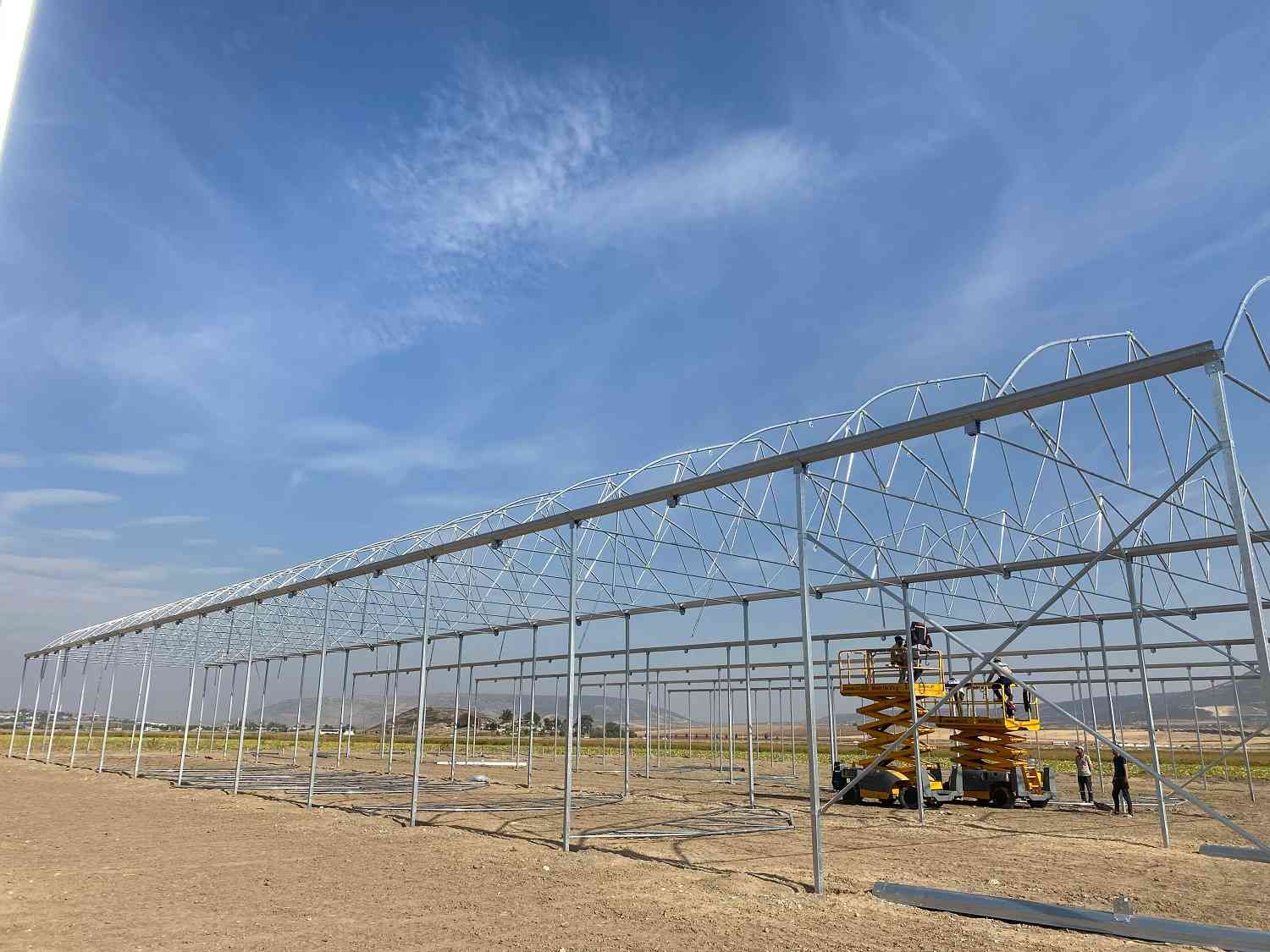- Category: Turkey
- Finish Date: 2023-11-24
- Country: Türkiye
- City: Kahramanmaraş
- Project URL:
TCK GREENHOUSE - Kahramanmaraş - SOIL-FREE TOMATO GREENHOUSE
| PROJECT OWNER: | TCK GREENHOUSE |
| PROJECT CONTRACTOR: | İSKA GREENHOUSE SYSTEMS |
| ARCHITECT: | ÖMER ULUDAĞ |
| SITE SUPERVISOR: | İSKENDER KAYA |
| PROJECT MANAGER: | MEHMET ZEKİ KAYA |
| Project Area: | 12.672m² |
| Project Duration: | IN PROGRESS |
| Year of Completion: | 2023 |
| Greenhouse Type: | Modern Gothic Greenhouse |
| PLANT GROWED: | TOMATO |
| Soil Type: | Soilless |
Goal: This project was initiated in Kahramanmaraş's Pazarcık district to encourage tomato production in soilless environment and to popularize modern agricultural practices. It also aims to contribute to the revitalization of the local economy and strengthening of community ties.
Vision: By establishing soilless tomato greenhouses in Pazarcık district, we aim to provide healthy, fresh tomato consumption to the local people throughout the year and at the same time to adopt sustainable agricultural practices.
- Main Goals:
1. Soilless Tomato Greenhouse: Creating the technical infrastructure for the establishment and management of modern and efficient soilless tomato greenhouses.
- 2. Training Programs: To increase productivity and quality by providing farmers with training on soilless farming techniques, irrigation methods and disease control.
- 3. Community Participation: Involving local people in the project and strengthening community ties by organizing tomato planting events.
- 4. Marketing and Sales Strategies: To ensure that the soilless tomatoes produced are marketed effectively not only in the local market but also in the markets of surrounding provinces.
- 5. Environmental Sustainability: Focusing on environmental sustainability practices such as waste management, energy saving, and use of organic fertilizers within the scope of the project.
- Expected Results: 1. Increasing soilless tomato production and more varieties becoming available in the local market.
- 2. Improving the knowledge and skills of local farmers on soilless agriculture.
- 3. Revitalization of the community economy and increased local participation in the tomato production chain.
- 4. Adoption and dissemination of environmental sustainability practices.
More About Project



